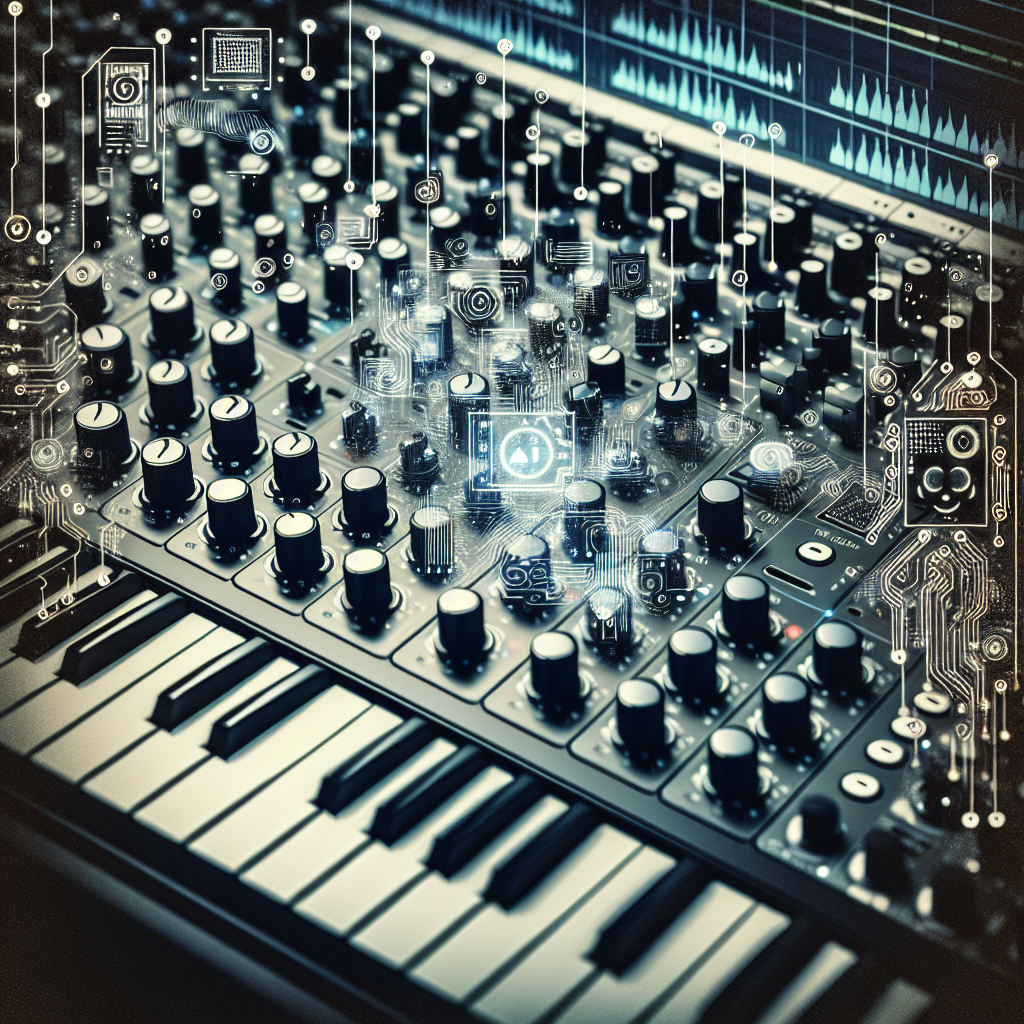The Impact of AI on Music Production and Mixing
AI, or artificial intelligence, has been making significant waves in the music industry over the past few years. From creating melodies to helping with mixing and mastering, AI technology is revolutionizing the way music is produced and consumed. In this article, we will explore the impact of AI on music production and mixing, and how it is changing the landscape of the music industry.
1. AI in Music Production
AI is being used in various aspects of music production, from generating melodies and lyrics to creating entire compositions. One of the most well-known AI music platforms is Amper Music, which allows users to create custom music tracks in minutes. Using AI algorithms, Amper can generate music in a variety of styles and genres, making it a valuable tool for musicians and producers looking to quickly create high-quality music.
Another AI music production tool is AIVA, an AI composer that can generate original music compositions in a matter of minutes. AIVA has been used in film scores, video games, and even advertising campaigns, showcasing the versatility and potential of AI in music production.
AI is also being used to analyze and predict music trends, helping artists and producers stay ahead of the curve. By analyzing data from streaming services, social media, and other sources, AI algorithms can identify emerging trends and help artists create music that resonates with their audience.
2. AI in Mixing and Mastering
In addition to music production, AI is also making a significant impact in the mixing and mastering process. Traditionally, mixing and mastering have been time-consuming and labor-intensive tasks that require a skilled engineer to achieve the desired sound. However, with AI-powered mixing and mastering tools, artists and producers can achieve professional-quality results in a fraction of the time.
One of the most popular AI mixing and mastering tools is LANDR, a platform that uses AI algorithms to analyze and process audio tracks. By inputting a raw audio file, users can receive a fully mastered track in a matter of minutes, complete with EQ adjustments, compression, and other effects. LANDR has been used by artists such as Nas, Tiesto, and Linkin Park, showcasing its effectiveness in the music industry.
Another AI mixing and mastering tool is iZotope Ozone, which uses machine learning algorithms to analyze audio tracks and make intelligent decisions about processing and mastering. By leveraging AI technology, iZotope Ozone can help artists achieve a polished and professional sound without the need for an experienced engineer.
3. FAQs
Q: Can AI replace human musicians and producers?
A: While AI technology has made significant advancements in music production and mixing, it is unlikely to replace human musicians and producers entirely. AI can certainly assist in creating music and achieving professional-quality results, but human creativity and intuition are still essential in the music-making process.
Q: How does AI impact the creative process in music production?
A: AI can streamline the music production process by generating melodies, harmonies, and compositions quickly and efficiently. This can free up time for artists and producers to focus on other aspects of their music, such as lyrics, arrangement, and performance.
Q: Are there any ethical concerns surrounding the use of AI in music production?
A: Some people have raised concerns about the potential for AI to replace human musicians and producers, leading to job displacement in the music industry. Additionally, there are concerns about the ownership of AI-generated music and the potential for copyright infringement. It is important for artists and producers to be aware of these issues and to use AI technology responsibly.
In conclusion, AI technology is having a profound impact on music production and mixing, revolutionizing the way music is created and consumed. From generating melodies to mastering tracks, AI is helping artists and producers achieve professional-quality results in a fraction of the time. While there are still ethical concerns surrounding the use of AI in music production, the potential for innovation and creativity is undeniable. As AI technology continues to evolve, the music industry is poised for further disruption and transformation.

